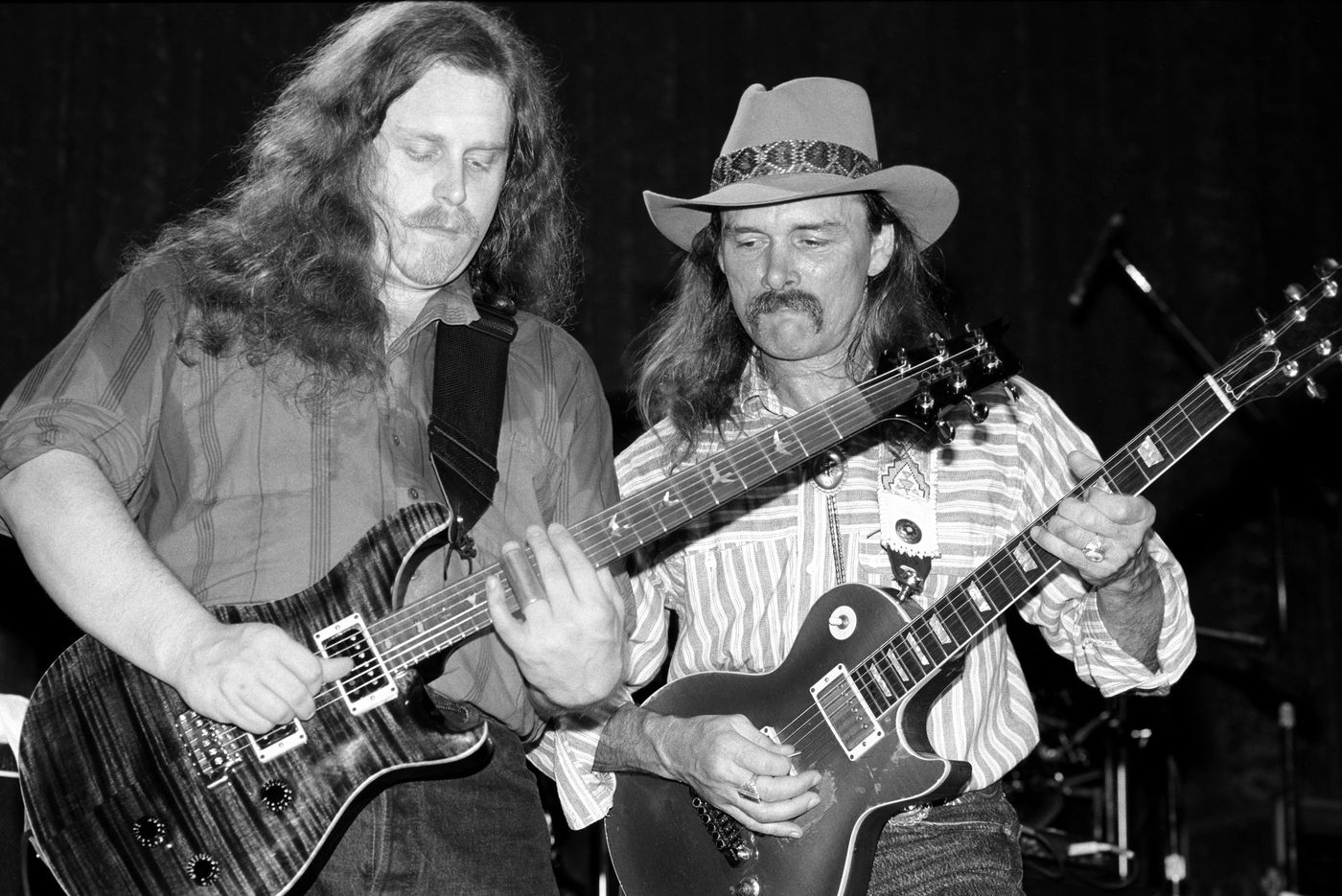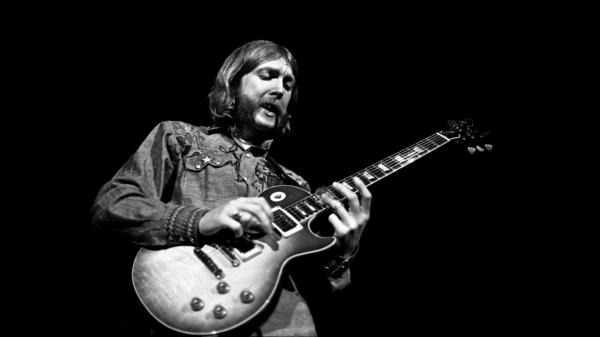As usual, my monthly blog post about the Guitar Player magazine from exactly 30 years ago has some cool excerpts and take-aways from the magazine. Besides good interviews with Jeff Healey and John Entwistle, the section on the Allman Brothers Dreams compilation was interesting, especially including the interviews with Betts and Duane:
The interview with Dickey Betts is focused largely on the box set, but also discusses the band’s music a bit. Sadly, I think this is the first and last interview with Betts in my entire collection of 20+ years’ worth of Guitar Player issues. Betts seems a little unhappy with the lack of involvement he had in assembling the tracks on the compilation, and also with what he seemed to be “mostly Duane’s and Gregg’s history” and that it “doesn’t quite show you a picture of how the Allman Brothers Band sound came to be”–I guess the public relations people didn’t get the official message to Dickey! Anyway, here are some highlights from the interview:
We’re releasing a 1970 Ludlow Garage version of “Statesboro Blues” as our Soundpage.
Aw, now that ought to be good! That was one of our favorite roadhouse gigs back then. That was a real dungeon, but it was a great place to play. Just a great crowd, and Ludlow, the manager of the place, was always a great guy….[t]hey had a stage and a good sound system and it was hot and sweaty and people came there to hear.
When was the first time you heard “Statesboro Blues”?
I think I heard Taj Mahal’s before I heard Blind Willie McTell’s. Jesse Ed Davis played good on that.
Duane’s slide figures are almost the same as Jesse Ed’s.
Yeah, but that’s not really embarrassing. Jesse Ed Davis was great, and….he was always a hero of ours. All of us talked about his playing a lot, and Duane really liked him.
Why was Warren Haynes chosen (for the upcoming reunion tour)?

He’s great. I like his slide playing because he’s from that Duane Allman school, with that real spitfire kind of sound–but he don’t copy Duane’s licks. I like that. He’s got his own definite style.
What has your experience taught you about getting a great two-guitar sound?
We usually try to get the guitars to sound like the same guitar, and then put one of them on a little different pickup setting. We only have better luck getting two Les Pauls. If you don’t have two Les Pauls, make the other guitar sound like a Les Paul. And then change one of them—maybe a little more treble, while the other has a little more bass. I’ve never had much luck trying to blend a Les Paul and a Stratocaster. And I always use a keyboard–usually with the two guitars–and there’s always another guitar playing the third higher than the tonic, which gives it that real pretty sound like “Jessica” and that stuff. And then the keyboard usually plays the fifth lower. That is the formula I use for my stuff.
Pretty cool to learn the secrets of Dickey Betts’ trademark harmonized guitars! A few weeks ago I saw an amazing concert by Skydog, an Allman Brothers tribute band based here in Richmond, VA. They absolutely nailed the Allman Brothers sound (you can read about their gear and it seems that they spare no expense to cop the tones). I think they must totally take the approach of getting the guitars to sound the same, and then varying one of them. Anyway, it sounded spectacular.
The interview with Dickey Betts is focused largely on the box set, but also discusses the band’s music a bit. Sadly, I think this is the first and last interview with Betts in my entire collection of 20+ years’ worth of Guitar Player issues. Betts seems a little unhappy with the lack of involvement he had in assembling the tracks on the compilation, and also with what he seemed to be “mostly Duane’s and Gregg’s history” and that it “doesn’t quite show you a picture of how the Allman Brothers Band sound came to be”–I guess the public relations people didn’t get the official message to Dickey! Anyway, here are some highlights from the interview:
We’re releasing a 1970 Ludlow Garage version of “Statesboro Blues” as our Soundpage.
Aw, now that ought to be good! That was one of our favorite roadhouse gigs back then. That was a real dungeon, but it was a great place to play. Just a great crowd, and Ludlow, the manager of the place, was always a great guy….[t]hey had a stage and a good sound system and it was hot and sweaty and people came there to hear.
When was the first time you heard “Statesboro Blues”?
I think I heard Taj Mahal’s before I heard Blind Willie McTell’s. Jesse Ed Davis played good on that.
Duane’s slide figures are almost the same as Jesse Ed’s.
Yeah, but that’s not really embarrassing. Jesse Ed Davis was great, and….he was always a hero of ours. All of us talked about his playing a lot, and Duane really liked him.
Why was Warren Haynes chosen (for the upcoming reunion tour)?

He’s great. I like his slide playing because he’s from that Duane Allman school, with that real spitfire kind of sound–but he don’t copy Duane’s licks. I like that. He’s got his own definite style.
What has your experience taught you about getting a great two-guitar sound?
We usually try to get the guitars to sound like the same guitar, and then put one of them on a little different pickup setting. We only have better luck getting two Les Pauls. If you don’t have two Les Pauls, make the other guitar sound like a Les Paul. And then change one of them—maybe a little more treble, while the other has a little more bass. I’ve never had much luck trying to blend a Les Paul and a Stratocaster. And I always use a keyboard–usually with the two guitars–and there’s always another guitar playing the third higher than the tonic, which gives it that real pretty sound like “Jessica” and that stuff. And then the keyboard usually plays the fifth lower. That is the formula I use for my stuff.
Pretty cool to learn the secrets of Dickey Betts’ trademark harmonized guitars! A few weeks ago I saw an amazing concert by Skydog, an Allman Brothers tribute band based here in Richmond, VA. They absolutely nailed the Allman Brothers sound (you can read about their gear and it seems that they spare no expense to cop the tones). I think they must totally take the approach of getting the guitars to sound the same, and then varying one of them. Anyway, it sounded spectacular.


